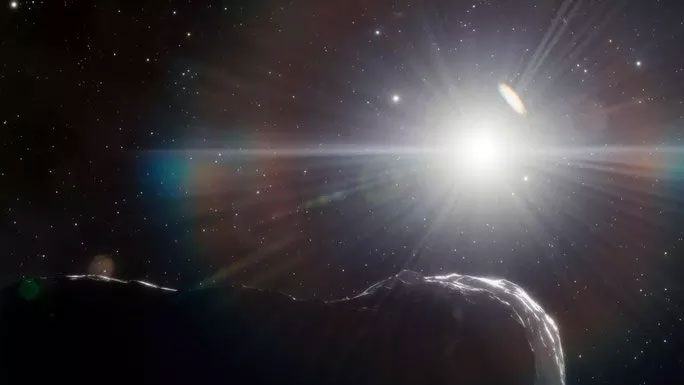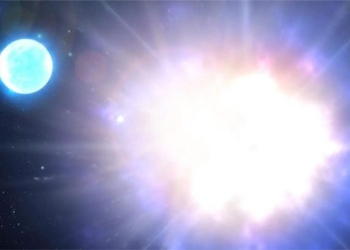In the blinding light of the Sun, scientists have discovered the most dangerous asteroid ever found and dubbed it the “planetary killer.”
According to Science Alert, the massive asteroid named 2022 AP7 has a diameter of up to 1.5 km, making it the largest near-Earth asteroid discovered in the past eight years. More concerning, it is on an orbit that could bring it close enough to Earth in the future to “cause problems.”
As reported by Space, if it collides with Earth, this asteroid could have an impact “felt across multiple continents,” which is why scientists have nicknamed it the “planetary killer.”

Graphic depiction of the “planetary killer” in the blinding sunlight – (Image: DOE/FNAL/DECam/CTIO/NOIRLab/NSF/AURA/).
2022 AP7 has been lurking there for a long time, between the orbits of Earth and Venus, and is large enough to be observed. However, it has been “hiding” in the bright glare of the Sun, a place where high-powered telescopes tend to avoid looking. The intense brightness of the Sun can damage their sensitive optical instruments.
It was fortuitously discovered thanks to the Dark Energy Camera at the Cerro Tololo Inter-American Observatory in Chile, which specializes in scanning the sky during twilight hours, helping to detect elusive objects like 2022 AP7.
According to a research team led by astronomer Scott S. Sheppard from the Earth and Planetary Laboratory at the Carnegie Institution for Science, if this “planetary killer” were to collide with Earth, it would cause far greater damage than the Chelyabinsk event.
Therefore, this will be a target that space agencies around the world need to closely monitor and direct planetary defense missions toward.
Currently, there are over 2,200 asteroids that pose potential threats, which are large space rocks moving dangerously close to Earth and measuring over 1 km in diameter.
In addition to the “planetary killer,” during this search, scientists also found two other large asteroids: 2021 PH27 and 2021 LJ4, but fortunately, their orbits do not intersect with Earth.





















































